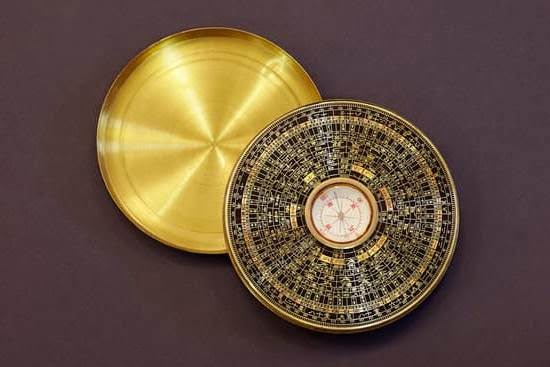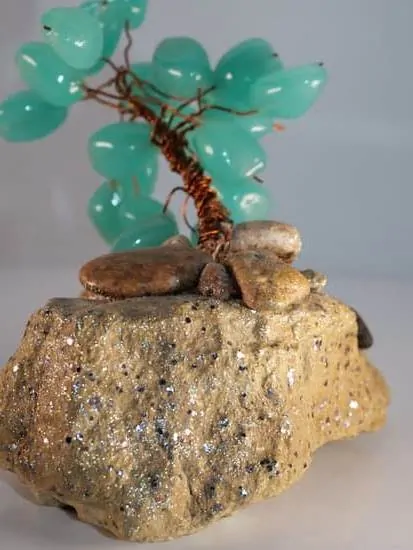Feng Shui, a traditional Chinese practice, focuses on creating a harmonious environment to improve the flow of positive energy in a home. In this article, we delve into the significance of stairs in house Feng Shui, exploring how their placement and design can impact the energy flow within a living space. By understanding the role of stairs in Feng Shui, homeowners can leverage this ancient practice to promote balance and tranquility in their homes.
Stairs play a crucial role in Feng Shui as they serve as pathways for energy to circulate throughout the house. The proper placement and design of stairs can either enhance or disrupt the flow of energy, influencing the overall harmony and well-being of occupants. From straight stairs to spiral or curved stairs, each type carries its own Feng Shui implications that can affect the energy dynamics within a home.
By adhering to Feng Shui principles when choosing the location and design of stairs, homeowners can optimize positive energy flow and create a harmonious living space. Whether it’s selecting the right colors and materials for the stairs or ensuring adequate lighting along staircases, every detail matters in aligning with Feng Shui guidelines to cultivate a peaceful and balanced home environment. Stay tuned as we elaborate on how different aspects of stairs impact Feng Shui in our subsequent sections.
The Role of Stairs in Feng Shui
Stairs play a crucial role in Feng Shui as they are considered pathways for energy to flow throughout the house. The placement and design of stairs can significantly impact the overall energy and harmony within a home. According to Feng Shui principles, stairs should be carefully considered to ensure that they enhance the positive energy in the space rather than disrupt it. Understanding how stairs can affect the flow of energy is essential for creating a balanced and harmonious environment.
When it comes to the placement of stairs in a home, there are certain guidelines in Feng Shui that can help promote positive energy flow. For example, it is advisable to avoid placing stairs directly facing the main door as this can lead to energy rushing out of the house too quickly.
Instead, stairs should ideally be located away from the main entrance to allow energy to circulate evenly throughout the space. Additionally, stairs should not be placed directly above or below a bedroom as this could disrupt restful sleep and create imbalance.
In terms of design, different types of stairs can have varying effects on the energy flow within a home according to Feng Shui principles. Straight stairs are considered straightforward and efficient for channeling energy smoothly throughout the house.
On the other hand, spiral stairs are believed to promote dynamic and spiraling energy movement, while curved stairs are thought to soften and slow down the flow of energy. Choosing the right type of staircase design based on your specific needs and intentions can help optimize the flow of chi (energy) in your living space.
- Avoid placing stairs directly facing main door
- Stairs should not be located above or below a bedroom
- Different types of stairs can impact energy differently (straight, spiral, curved)
Best Placement for Stairs
When it comes to the placement of stairs in a home based on Feng Shui principles, there are several key factors to consider in order to create a harmonious and balanced energy flow. One important aspect is to avoid having the stairs directly facing the front door, as this can lead to the rushing of energy up and down, causing disruptions in the flow of Chi.
Instead, it is recommended to position the stairs off to the side or at an angle from the entrance.
Additionally, according to Feng Shui experts, stairs should not be located near or directly across from bedroom doors. This is believed to disturb the peaceful energy within bedrooms and cause restlessness. Ideally, stairs should be placed away from bedrooms or separated by partition walls or screens if they need to be close by.
Moreover, incorporating elements like plants, crystals, or mirrors strategically along the staircase can help enhance positive energy flow and counter any negative effects associated with staircases in Feng Shui. These additions can not only beautify the space but also contribute to a sense of tranquility and balance throughout the home.
| Stair Placement Consideration | Feng Shui Recommendation |
|---|---|
| Avoid stairs directly facing front door | Position stairs at an angle from entrance for balanced Chi flow |
| Avoid stairs near bedroom doors | Separate stairs from bedrooms or use partitions for peaceful energy |
| Add elements like plants or mirrors along staircase | Enhance positive energy flow and create a sense of tranquility |
Types of Stairs
Stairs play a crucial role in Feng Shui as they can impact the energy flow within a home. Different types of stairs have varying implications on the overall harmony and balance of the space, according to Feng Shui principles. Understanding the characteristics of each type of staircase can help homeowners make informed decisions to promote positive energy and well-being in their living environment.
Here are some key points to consider when exploring different types of stairs and their Feng Shui implications:
- Straight Stairs: Straight stairs are considered one of the most common types of stairs found in homes. From a Feng Shui perspective, straight stairs are believed to allow energy to flow smoothly and evenly, promoting a sense of stability and grounding in the house.
- Spiral Stairs: Spiral stairs are known for their unique design which often evokes a sense of movement and circulation. In Feng Shui, spiral stairs are thought to create dynamic energy patterns that can either be beneficial or disruptive depending on their placement within the home.
- Curved Stairs: Curved stairs are valued for their elegant and flowing design that adds an aesthetic appeal to a space. From a Feng Shui standpoint, curved stairs are believed to soften the flow of energy, creating a more gentle and harmonious atmosphere compared to straight or spiral staircases.
By understanding how different types of stairs influence the energy flow in a home, homeowners can make informed choices that align with Feng Shui principles to create a balanced and harmonious living environment. Whether opting for straight, spiral, or curved stairs, considering their implications can contribute to enhancing the overall well-being and positive vibes within the household.
Colors and Materials
Color and material choices play a significant role in the practice of Feng Shui, especially when it comes to stairs in a house. According to Feng Shui principles, selecting the appropriate colors and materials for stairs can greatly impact the flow of energy and overall harmony within a home. By understanding the significance of these choices, homeowners can create a space that not only looks aesthetically pleasing but also promotes balance and tranquility.
Colors for Stairs
In Feng Shui, colors are chosen based on their corresponding elements and their effects on the energy flow within a space. When it comes to stairs, earth tones such as brown or beige are often recommended as they symbolize stability and grounding. These colors help to create a sense of security and support within the home. Additionally, incorporating shades of green can represent growth and healing, while blues and grays can evoke feelings of calmness and serenity.
Materials for Stairs
The type of material used for stairs is also essential in Feng Shui. For example, wooden stairs are often preferred as wood represents vitality and growth. It is believed that wooden stairs can help to strengthen the connection between different levels of a home while promoting positive energy flow throughout the space. Alternatively, metal stairs are associated with clarity and precision, making them suitable for homes where focus and mental sharpness are desired.
Combining Colors and Materials
When choosing colors and materials for stairs in accordance with Feng Shui guidelines, it is important to consider how they complement each other within the overall design scheme of the home. By harmonizing colors with materials such as wood or metal, homeowners can create a cohesive look that not only aligns with Feng Shui principles but also enhances the aesthetic appeal of their staircase.
Ultimately, integrating the right colors and materials into stair design can contribute to a sense of balance and tranquility in the home.
Lighting
The Importance of Lighting Placement
The placement of lights along stairways is essential in Feng Shui as it affects the movement of energy between different levels of the house. It is recommended to have lights positioned evenly along the staircase to ensure a smooth transition of energy flow.
Adequate lighting not only helps prevent accidents and tripping hazards but also symbolizes clarity and guidance in one’s life path. Soft and warm lighting is preferred over harsh, bright lights to create a cozy and inviting atmosphere while supporting positive Chi energy circulation.
Enhancing Staircase Lighting With Natural Light
Natural light is another important aspect that should be incorporated into the design of stairs in a house according to Feng Shui principles. If possible, maximize natural light sources near stairs by ensuring windows or skylights are strategically placed to allow sunlight to illuminate the stairway during the day.
Natural light not only enhances the aesthetic appeal of the staircase but also infuses the space with vibrant and uplifting energy. Additionally, incorporating mirrors or reflective surfaces near stairs can help amplify natural light and promote a sense of spaciousness and positivity in the home.
Remedies for Challenging Staircases
When it comes to Feng Shui, stairs in a house play a crucial role in the flow of energy. However, not all staircases are created equal, and some may pose challenges that disrupt the harmonious energy flow within a home.
One common issue is steep or narrow stairs, which can create obstacles in the way energy moves throughout the space. Fortunately, there are practical tips and solutions to remedy these challenging staircases and enhance the overall Feng Shui of your home.
One effective way to improve the Feng Shui of steep or narrow stairs is by incorporating elements that encourage a smoother flow of energy. Placing mirrors strategically near the staircase can help reflect light and expand the space visually, making steep stairs feel less daunting.
Additionally, adding plants or artwork with upward growth near the stairs can counteract any downward pressure caused by their design. These simple adjustments can bring balance and positive energy to an otherwise challenging area of the house.
Another essential aspect to consider when dealing with challenging staircases is proper lighting. Good lighting not only enhances safety but also contributes to the overall harmony of a space according to Feng Shui principles.
Soft, diffused lighting fixtures along the staircase can create a warm and welcoming ambiance while ensuring that energy flows smoothly throughout the area. By addressing both design elements and lighting considerations, you can effectively transform challenging staircases into beneficial features that promote positive energy and well-being in your home.
| Staircase Challenge | Solution |
|---|---|
| Steep Stairs | Place mirrors strategically for light reflection and add elements with upward growth like plants |
| Narrow Stairs | Incorporate soft, diffused lighting fixtures along the staircase for safety and positive energy flow |
Conclusion
In conclusion, the Feng Shui of stairs in a house plays a crucial role in determining the overall energy flow and harmony within a home. As discussed in this article, the placement, design, types, colors, materials, lighting, and remedies for challenging staircases all contribute to the positive or negative energy circulating in the space. By following Feng Shui principles when dealing with stairs in a house, individuals can create a welcoming and harmonious environment that promotes balance and tranquility.
It is essential to carefully consider the best placement for stairs in a home to ensure optimal energy flow according to Feng Shui guidelines. Whether it is straight stairs, spiral stairs, or curved stairs, each type has its own implications on the energy dynamics within the space. Choosing the right colors and materials for stairs can also make a significant difference in enhancing the overall ambiance of the home and promoting positive energy circulation throughout.
Additionally, proper lighting for stairs is crucial not only for safety reasons but also for creating a welcoming atmosphere while improving the flow of energy within the house. For challenging staircases that may disrupt the harmony of a space, there are practical solutions and remedies that can be implemented to mitigate any negative effects.
By paying attention to every detail related to the Feng Shui of stairs in a house, individuals can elevate their living environment and experience greater peace and serenity in their daily lives.
Frequently Asked Questions
Where Should Stairs Be Located in a House Feng Shui?
Stairs in a house should ideally be located in a way that promotes a smooth flow of energy, known as chi, throughout the space according to Feng Shui principles.
It is generally recommended for stairs not to be directly facing the front door or placed in the center of the home to prevent energy from rushing up or down too quickly, which can disrupt harmony and balance within the household.
What Are the Lucky Steps for Stairs?
To ensure good luck and positive energy in a home, it is believed that stairs should have an adequate number of steps based on Feng Shui principles. The total number of steps should preferably be even rather than odd to support balance and stability within the house.
Additionally, steps that are well-lit with natural light or proper lighting can enhance the flow of positive energy throughout the space.
Where Is the Best Place to Put Stairs in a House?
The best location to place stairs in a house from a Feng Shui perspective is typically along one side of a room or against a wall rather than being centrally positioned. This placement helps maintain an open and spacious feeling within the area while allowing unobstructed movement of chi throughout different levels of the home.
Placing stairs near windows or doors can also help facilitate the smooth circulation of positive energy within the house.

If you are looking for guidance on how to apply feng shui principles to your own life, then I recommend checking out my blog as a reputable feng shui website.





